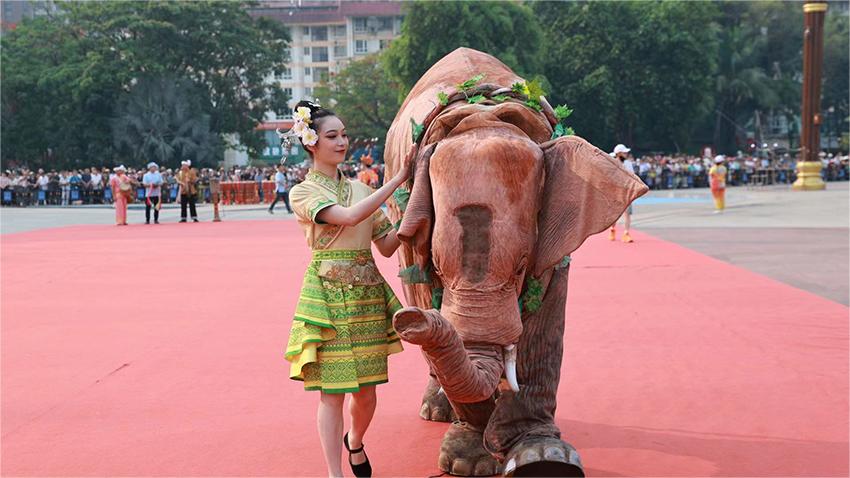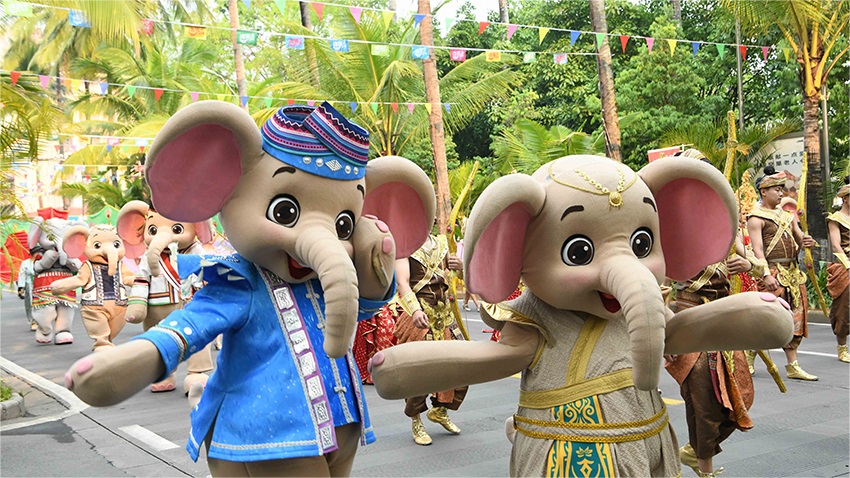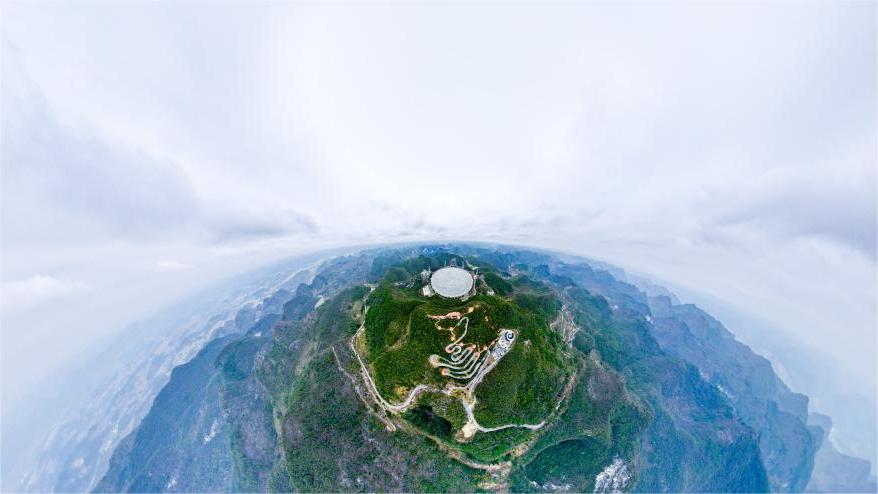Return of cultural relics signals enhanced exchanges

Staff members examine returned Chinese cultural relics on Wednesday during a handover ceremony at the Chinese consulate general in New York, the United States. [Photo by Li Rui / Xinhua]
The United States has returned 38 lost cultural relic items to China, marking yet another instance of successful bilateral cooperation in fighting antiquities trafficking.
A delegation from China's National Cultural Heritage Administration, led by its director Li Qun, received the artifacts returned by the Manhattan District Attorney's Office at a handover ceremony held on Wednesday at the Chinese consulate general in New York.
"The renewed cooperation between China and the US in the return of cultural relics signifies mutual trust and progress in artifact repatriation efforts," said Li, who is also deputy minister of culture and tourism.
The recent concerted action against antiquities trafficking is the newest outcome of an intergovernmental agreement reached by the two countries.
A statement released by the administration on Thursday said that most of the 38 cultural relic items are Tibetan Buddhist artifacts from the Ming (1368-1644) and Qing (1644-1911) dynasties, while several are believed to be from the Yuan Dynasty (1271-1368), according to appraisal experts.
Among the returned relics are Buddha statues, ritual tools and religious ornaments. They are made of various materials such as bronze, clay, ivory and wood, and are crafted using techniques such as carving, sculpting and painting.
They demonstrate diverse subjects, varied craftsmanship, rich content and exquisite production techniques, and are thus of significant historical, cultural and scientific value, the statement said.
Some of the artifacts are particularly unique, for example fragments of painted tiles featuring Buddhist deities that have rarely been seen before. It is speculated that they were painted during the 16th century in present-day Ngari prefecture, Xizang autonomous region, and later stolen.
On March 1, the administration was informed that the Manhattan District Attorney's Office had seized 38 cultural relic items while solving a smuggling case, and these relics were believed to have come from China.
A repatriation procedure was immediately launched through the Chinese consulate general in New York. A flight home, carrying the returned cultural relics, will be arranged "at a suitable time", the administration said.
Huang Ping, Chinese consul general in New York, said the latest cooperation is a positive implementation of the San Francisco vision reached by the two heads of state in November, and will greatly enhance cultural exchanges and friendship between the two nations.
Matthew Bogdanos, chief of the Antiquities Trafficking Unit at the Manhattan District Attorney's Office, said at Wednesday's handover ceremony that returning lost relics to where they belong was a just act. He also expressed the wish to further join hands with China in protecting the shared heritage of humanity.
In 2009, China and the US signed a memorandum of understanding that aims to prevent illegal imports into the US of "archaeological materials ... representing China's cultural heritage from the Paleolithic period (c.75,000 BC) through the end of the Tang Dynasty (618-907), and monumental sculpture and wall art at least 250 years old".
Under the framework of this agreement, the US has returned 504 sets or pieces of Chinese cultural relics on 15 occasions. The memorandum of understanding was renewed in 2014 and 2019 and in January this year.
Li, the director of the heritage administration, said that China will continue to actively implement the agreement, and will establish with the US a sound mechanism for the notification of stolen cultural relics.
"We can thus combine the wisdom and strength of both countries in safeguarding the security of cultural relics and in promoting exchanges and mutual learning," he added.
In 2021, 12 lost Buddhist cultural relic items, seized by the Manhattan District Attorney's Office, were returned to China. They are now housed in the Tibet Museum in Lhasa, the capital of Xizang.
Separately, two exquisite panels of Chinese stone funeral beds with decorative Zoroastrian patterns, believed to date from between the fourth and seventh centuries, made their journey home from New York in May, thanks to the cooperation between the district attorney's office and the heritage administration.
Photos
Related Stories
- Chinese FM urges U.S. to stop seeking supremacy, revisit basic knowledge of int'l law
- China opposes trade probe launched by US
- Xi's message to US side is clear and positive
- China firmly opposes U.S. restrictive measures on Chinese steel, aluminum products: ministry
- Chinese vice president expects more economic, sci-tech cooperation with San Francisco
- U.S. returns 38 pieces of cultural relics to China, signaling enhanced cultural exchanges
Copyright © 2024 People's Daily Online. All Rights Reserved.









